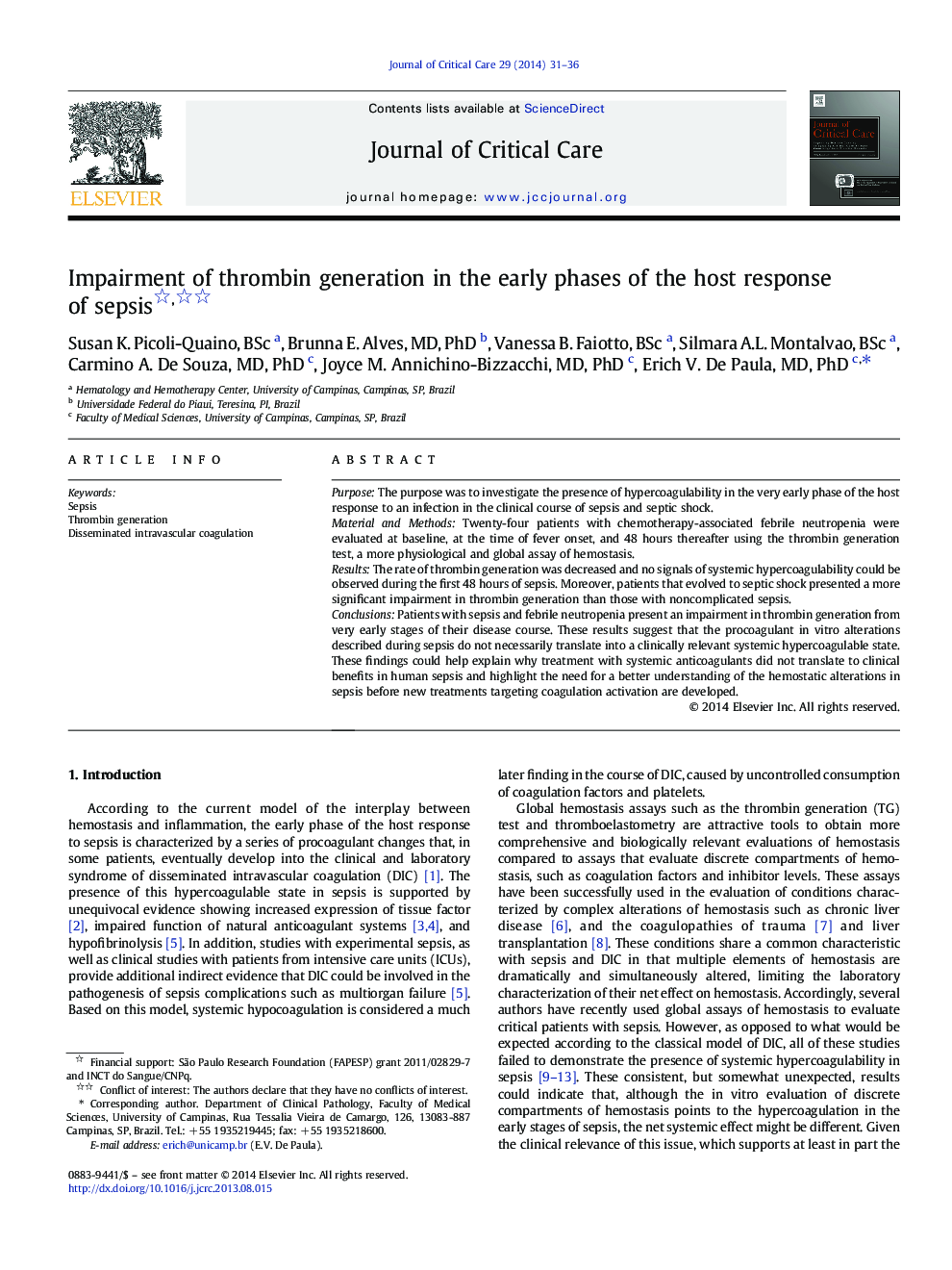| کد مقاله | کد نشریه | سال انتشار | مقاله انگلیسی | نسخه تمام متن |
|---|---|---|---|---|
| 2764650 | 1150934 | 2014 | 6 صفحه PDF | دانلود رایگان |
PurposeThe purpose was to investigate the presence of hypercoagulability in the very early phase of the host response to an infection in the clinical course of sepsis and septic shock.Material and MethodsTwenty-four patients with chemotherapy-associated febrile neutropenia were evaluated at baseline, at the time of fever onset, and 48 hours thereafter using the thrombin generation test, a more physiological and global assay of hemostasis.ResultsThe rate of thrombin generation was decreased and no signals of systemic hypercoagulability could be observed during the first 48 hours of sepsis. Moreover, patients that evolved to septic shock presented a more significant impairment in thrombin generation than those with noncomplicated sepsis.ConclusionsPatients with sepsis and febrile neutropenia present an impairment in thrombin generation from very early stages of their disease course. These results suggest that the procoagulant in vitro alterations described during sepsis do not necessarily translate into a clinically relevant systemic hypercoagulable state. These findings could help explain why treatment with systemic anticoagulants did not translate to clinical benefits in human sepsis and highlight the need for a better understanding of the hemostatic alterations in sepsis before new treatments targeting coagulation activation are developed.
Journal: Journal of Critical Care - Volume 29, Issue 1, February 2014, Pages 31–36
